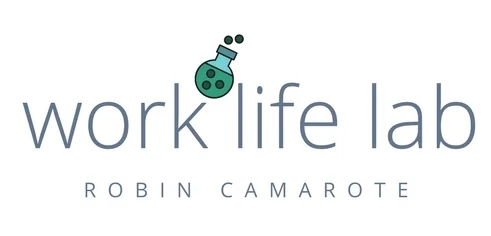The best meetings start with strong, clear opening remarks that set the tone for the session. A good set of introductory talking points include the meeting's purpose and your role as the host or facilitator, perspective on the challenge, support of the organization's leadership, and any logistics.
I facilitated a strategic planning and leadership team meeting with a new client this week. She'd found me on LinkedIn which was both a delight and surprise because that had never happened before. Sure, I've made hundreds of connections there that have come out of work or eventually led to more work but this was a first.
On top of the fortuitous find, she's been the ideal client in a lot of ways. She knows what she wants, keeps up her end of the bargain, provides timely feedback, and is decisive. In short, I love her.
In advance of the meeting, we did the typical preparation things such as bat the agenda back and forth and meet in person for coffee-- presumably, for her to be sure I didn't drool inappropriately and for me to make sure she wasn't really sneaky Rodin and Fields rep in disguise. I passed and so did she, thank goodness. We could move on.
Once the logistics were set, agenda was finalized, and I'd read through all of the background material, she sent over some introductory talking points. She was clear that she didn't want to be too prescriptive but that this meeting was really important to her for a number of reasons and she wanted to make sure it went off without a hitch.
I read through and thought-- wow, that's exactly what I would have said but better and more complete. I like that they're clear, set expectations, are reassuring, and positive. I'm going to adopt these as my standard talking points and think you might be able to use them too as a structure to kick-off your next meeting.
So... with that really long introduction, here they are.
THANK YOU: Thank you for having me, and for contributing to the discussions we’re going to have.
IN MY EXPERIENCE: I’ve helped companies going through struggles that are similar to yours. I want you to know that this is not uncommon. And it’s 100% surmountable. Smart people, working in high-stakes environments, where things are constantly changing and so much is unclear – are going to need to do some team maintenance and calibration from time to time. Or to do a complete reset when it’s needed. It’s not only normal, it’s required in high-performing organizations.
AS (THE CEO) SAID: So I want to echo what (the CEO) said. Today is about understanding each other, and ensuring people are empowered to make decisions; that people are clear on their decision-making authority as it relates to others’; and that people are supported in the decisions they do make.
WHY WE'RE HERE: This is about operational performance and effectiveness of this team – and of each of you as individual contributors to it. It’s not about mission/vision/goals-type things. It’s not about tactical minutiae. It’s about making this team work better and mapping out how to do that.
MY ROLE IS: I’m going to manage a discussion today. You have agendas in front of you that spell out what we’ll do when. But ultimately, this is your discussion. My job is to help it happen. My role here is a small one. This is your meeting, your session. I encourage everyone to participate and to really commit to the goals for the day.
LOGISTICS: We will take breaks as needed. Restrooms are… We will work through lunch to make the most of the day. And everyone will have a couple hours between the session and dinner to catch up on emails and things. Please, as best you can, refrain from using your phones. Keep your laptops closed. Multi-tasking really isn’t possible today. Thanks in advance for your participation… and let’s get started.

